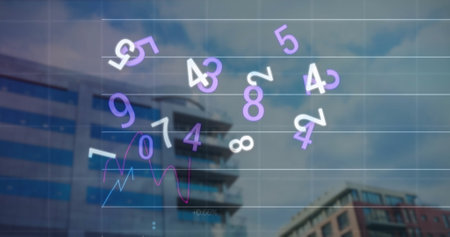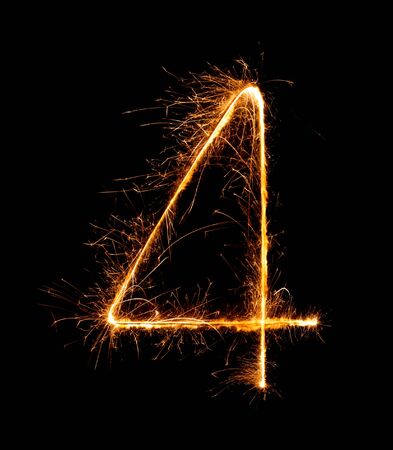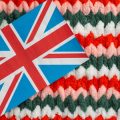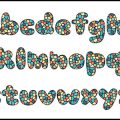Introduction to British Naming Traditions
British naming traditions are deeply rooted in the nation’s storied history, reflecting a tapestry of influences from ancient customs to modern societal shifts. In the United Kingdom, names are far more than mere labels; they are a living testament to lineage, heritage, and social identity. Historically, names in Britain were often chosen to honour family ancestors or to signify religious devotion, with Christian saints’ names and those of monarchs being especially favoured. Over centuries, waves of migration, conquest, and cultural exchange—such as the Norman invasion or the influx of Celtic and Norse influences—have each left their mark on the British lexicon of names. Today, while many families continue to uphold longstanding naming conventions, there is also an increasing openness to creative and diverse choices, reflecting the dynamic and evolving nature of British society. The interplay between tradition and innovation is evident in the way names are selected, adapted, and passed down through generations, making British naming practices a fascinating subject of both historical study and contemporary interest.
2. The Symbolic Meanings Behind British Names
British names are more than mere labels; they are repositories of history, culture, and personal meaning. The origins and significance of common British names often trace back to ancient customs, ancestral lineage, and the nuanced hierarchies of society. Many names were originally chosen to reflect a familys occupation, regional identity, or even social standing, and these influences remain evident in today’s naming practices.
For example, surnames such as Smith, Baker, or Carter stem directly from traditional trades and professions, while names like York or Lancaster point to local heritage and geographical roots. First names, too, are often imbued with symbolic meanings—Edward denotes “wealthy guardian,” while Margaret means “pearl,” signifying something precious and valued.
In British society, names could also indicate status and kinship. Aristocratic families frequently passed down names through generations, emphasising continuity and legacy. Conversely, the adoption of certain biblical or saintly names reflected religious devotion or aspirations for virtue. Over time, these choices became intertwined with numerological beliefs, with families selecting names whose numerical values were thought to confer luck or harmony upon the bearer.
| Name | Origin | Meaning | Cultural Significance |
|---|---|---|---|
| William | Germanic | Resolute Protector | Royal association, leadership |
| Elizabeth | Hebrew | God is My Oath | Monarchic tradition, piety |
| Taylor | Occupational | Tailor (cloth cutter) | Trade-based identity |
| Chester | Latin/Old English | Roman Fort/Camp | Geographical roots, heritage pride |
| Rose | Latin | The Flower Rose | Symbol of beauty, English emblem |
This intricate tapestry of naming tradition reveals how every British name carries a story—one that interweaves ancestry, regional pride, social aspiration, and sometimes a touch of mysticism. Understanding these layers not only deepens our appreciation for each name’s resonance but also provides insight into the values held by generations past and present.

3. Numerology: Foundations and Principles
At its heart, numerology is the ancient study of numbers and their mystical significance in our lives. In British tradition, as elsewhere, names are far more than mere labels; they are imbued with hidden meanings and subtle energies, often believed to shape the character and destiny of an individual. Numerology offers a gentle yet profound lens through which we can interpret these underlying currents. Each letter of the alphabet corresponds to a specific number, and through careful calculation—most commonly using the Pythagorean or Chaldean methods—a persons name and birthdate are transformed into a set of core numbers. These numbers, such as the Life Path, Destiny, and Soul Urge numbers, serve as windows into a person’s innermost self. Through this lens, numerology suggests that every name chosen within British naming customs carries a unique vibrational pattern, revealing latent strengths, challenges, and even the broad outline of one’s life journey. While the practice has evolved over centuries, its central principle remains unchanged: numbers act as keys to understanding personality traits and life’s deeper purpose. For those seeking meaning within traditional British names—whether passed down through generations or newly bestowed—numerology provides a respectful and insightful approach to uncovering the stories woven into each syllable.
4. Intertwining Numerology with British Naming Customs
In the tapestry of British naming traditions, numerology has long held a subtle yet fascinating presence. While the British Isles are renowned for their deep-rooted customs and reverence for ancestry, the mystical influence of numbers has woven itself into the very fabric of how names are chosen, understood, and cherished. Numerological methods can be thoughtfully applied to British names, shedding light on the spiritual resonance believed to be carried within each name.
At its heart, numerology is a system that assigns numerical value to letters, thereby unlocking hidden meanings and potential energies. In Britain, this practice has found its place alongside Christian and Celtic influences, often used by those seeking to imbue their child’s name with auspicious qualities or harmonious vibrations. For instance, the number seven is traditionally seen as lucky and spiritually significant in British culture, symbolising wisdom and introspection—a trait many parents might hope to encourage in their offspring.
Numerological Application: The Name Calculation Table
To illustrate how numerology can be applied to British names, consider the classic Pythagorean method. Each letter is assigned a number from 1 to 9:
| Number | Letters |
|---|---|
| 1 | A, J, S |
| 2 | B, K, T |
| 3 | C, L, U |
| 4 | D, M, V |
| 5 | E, N, W |
| 6 | F, O, X |
| 7 | G, P, Y |
| 8 | H, Q, Z |
| 9 | I, R |
Let us take the quintessentially British name “Edward” as an example. Assigning the numbers yields E(5), D(4), W(5), A(1), R(9), D(4). Adding these: 5+4+5+1+9+4 = 28; further reduced: 2+8 = 10; and finally 1+0 = 1. The number one is associated with leadership and individuality—qualities celebrated in many great Britons throughout history.
Traditional Beliefs: The Power of Numbers in Names
The belief in the spiritual power of numbers extends far beyond simple calculation. In traditional British society, numbers were often consulted for naming not only individuals but also estates and ships, underscoring a desire for protection and prosperity. Certain numbers were favoured or avoided based on regional folklore; for example, the number three is revered for its association with the Holy Trinity and completeness, while four may be cautiously regarded due to its connection with endings or transitions.
The Spiritual Role of Naming Ceremonies
Historically, naming ceremonies in Britain—whether at the baptismal font or during private family gatherings—sometimes included prayers or blessings that invoked favourable numbers. This reflects a collective yearning to ensure that every new member of society is graced with harmony and good fortune from the outset.
The Continuing Legacy
Even today, some British families quietly consult numerological charts when naming children, wishing to balance tradition with a touch of mystical assurance. This enduring practice serves as a gentle reminder that names in Britain are not merely labels—they are vessels of heritage and hope, shaped both by familial love and the silent guidance of numbers.
5. Modern Perspectives: Numerology in Contemporary British Naming
In today’s Britain, the ancient wisdom of numerology is finding a fresh resonance within modern naming traditions. While heritage and family legacy continue to play a crucial role in choosing names, there is a growing curiosity about the deeper meanings and vibrations that names can hold, as revealed through numerological analysis. Many parents are now seeking names that not only honour their lineage but also reflect aspirations for their children’s futures, blending tradition with a quest for individuality.
Across the UK, it has become increasingly common for expectant parents to consult numerological guides or even specialists when deliberating over baby names. This contemporary approach often involves calculating the numerical value of different name combinations, considering both the given and family names, to identify those believed to bring harmony, luck, or particular strengths. Such practices are not confined solely to new births; adults, too, may explore numerology when contemplating name changes due to marriage or personal reinvention, wishing to align more closely with their desired life path.
The interplay between heritage and self-expression is particularly notable. While many British families wish to preserve time-honoured names—sometimes spanning generations—they might subtly adapt spellings or select middle names that harmonise numerologically with the child’s full birth chart. This synthesis allows families to pay homage to their roots while embracing the potential for personal growth and positive energy that numerology promises.
In addition, celebrities and public figures have helped bring numerological considerations into the mainstream. Media coverage of famous personalities who have altered their names for career success or spiritual reasons has sparked greater public interest in the subject. As a result, what was once considered an esoteric practice is now discussed openly in parenting forums, magazines, and even among friends and relatives.
Ultimately, the integration of numerological insights into contemporary British naming practices reflects a society that values both its storied past and its evolving sense of identity. Through this lens, each name becomes more than just a label—it is imbued with intentionality and meaning, crafted thoughtfully to support both ancestral honour and individual destiny.
6. Case Studies and Practical Examples
Exploring Classic British Names Through Numerology
To truly appreciate the intersection of British naming traditions and numerology, let us examine a selection of names—some drawn from history, others constructed for illustrative purposes—analysed through the numerological method commonly used in the UK. This approach involves assigning each letter a numerical value (A=1, B=2, etc.) and reducing the sum to a single digit, revealing underlying patterns and meanings.
Example 1: Elizabeth
Elizabeth, a name steeped in royal heritage, is calculated as follows: E(5) + L(3) + I(9) + Z(8) + A(1) + B(2) + E(5) + T(2) + H(8) = 43; 4 + 3 = 7. The number 7 is associated with wisdom, introspection, and spiritual insight—qualities befitting queens and stateswomen who have borne this venerable name in British history.
Example 2: William
William—a name beloved by generations of Britons—yields W(5) + I(9) + L(3) + L(3) + I(9) + A(1) + M(4) = 34; 3 + 4 = 7. Once again, we arrive at the number 7, suggesting a shared destiny of thoughtfulness and an analytical mind, both prized traits in leaders such as William the Conqueror and contemporary figures like Prince William.
Example 3: Florence
Florence, echoing the legacy of Florence Nightingale, results in F(6) + L(3) + O(6) + R(9) + E(5) + N(5) + C(3) + E(5) = 42; 4 + 2 = 6. The number 6 reflects compassion, responsibility, and care for others—qualities emblematic of Florence Nightingale’s contributions to nursing and public health.
Hypothetical Example: Poppy Green
Poppy Green—a charmingly modern British name—calculates as P(7) + O(6) + P(7) + P(7) + Y(7) = 34; G(7) + R(9) + E(5) + E(5) + N(5) = 31; total is 34+31=65; 6+5=11; 1+1=2. The final number, 2, symbolises harmony, adaptability, and partnership—apt for someone destined to bring people together and foster community spirit.
Patterns and Interpretations
These examples illuminate fascinating patterns within British naming conventions. Traditional names often resonate with numbers that reflect qualities long valued in British culture—wisdom, duty, compassion, and unity. Whether examining a royal name steeped in history or a contemporary creation inspired by nature, numerology offers a fresh perspective on how names may quietly influence character and destiny within the tapestry of British society.
7. Conclusion: Tradition Meets the Modern Age
As we draw our exploration of British naming traditions and numerological perspectives to a close, it becomes clear that the enduring charm of British names lies in their unique ability to balance reverence for history with openness to new influences. Names in Britain have long carried the weight of ancestral legacy, regional identity, and familial honour, all interwoven with the understated elegance so characteristic of British culture. Yet, as society evolves and modern sensibilities influence how parents select names for their children, numerology has quietly found its place alongside these age-old customs. Today, more families seek not only a name’s sound or heritage but also its potential to guide and bless a child’s journey through life.
By blending traditional values with numerological insight, contemporary Britons are crafting a naming landscape that is both respectful of the past and responsive to the present. The subtle interplay between history and symbolism ensures that each name remains more than a label; it becomes an ongoing story, shaped by both collective memory and individual aspiration. In this way, the ancient practice of naming—so deeply rooted in British society—continues to evolve, offering both continuity and inspiration for generations to come.


